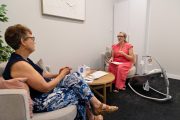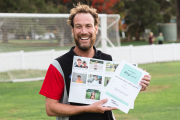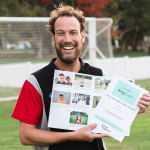Parenting on Empty: The Invisible Workload Shouldered by Parent Carers
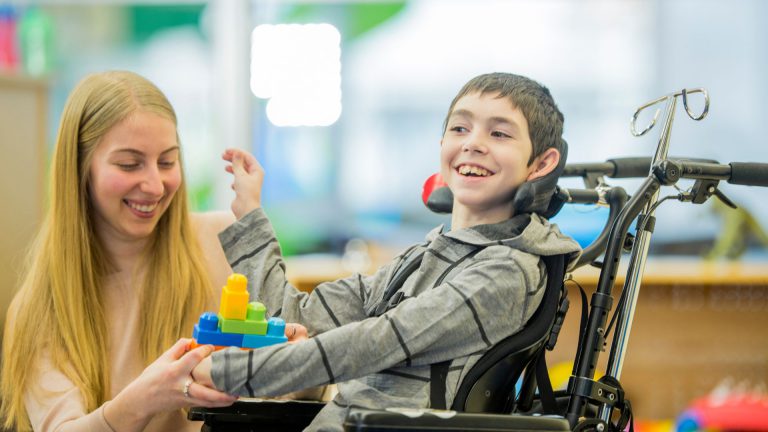
Written by Michelle Olaithe, Clinical and Project Lead at RippleAbility. RippleAbility was established to empower families to access, understand and optimise systems that support them in their disability journey. RippleAbility is a paediatrics specific service (0-18) that help parents, carers and participants identity both informal and formal support networks as they navigate and pioneer their disability experience.
In Australia, more than half a million children live with severe or profound disability1. Behind every one of those children is a family, parents, siblings and grandparents whose lives are profoundly shaped by the responsibilities of care. There’s no question about the love parents have for their children but love alone doesn’t erase exhaustion and for families raising a child with complex needs, the day-to-day can feel relentless.
As a clinical psychologist working alongside families navigating disability, I’ve heard a consistent story: utter exhaustion. Parents often describe feeling “on duty” as a carer 24/7. Many leave the workforce as managing therapies, appointments and constantly meeting their child’s care needs leaves no room for a career. One third (33.2%) of primary carers of children report leaving the labour force after taking on a caring role and over a quarter (27%) report tension within the household1. These figures reflect the reality of raising a child with profound disability — parents stepping away from careers, navigating relationship strain and isolation, and watching as their other children quietly adjust to a household that revolves around the needs of one.
In these families there isn’t a lack of love or dedication rather a shortage of support.
The Reality of an Unequipped System
While typical Australian families can access childcare or early learning programs at a subsidised rate, with most (96%) paying less than $5 per hour2, families of children with profound disability are rarely afforded the same opportunity. In fact, families of children with profound disability may be required to pay up to $62 per hour for a support worker, amounting to an out-of-pocket expense up to 11 times higher for equivalent childcare hours3. Mainstream childcare services are not sufficiently equipped, trained or funded to provide the specialised care these children require. What results is a patchwork system where families are expected to cobble together solutions in an already emotionally and financially challenging situation.
The consequences are grave. Research shows that parents of children with a disability are at greater risk of psychological distress and depression4. Siblings of children with profound disability are also reported to experience higher rates of anxiety and depression and may develop feelings of guilt as they struggle to reconcile their own needs with the attention demanded by their brother or sister5. Over time, the lack of support doesn’t just affect the wellbeing of the parents, it impacts the entire family unit.
Why Respite Matters
Too often, ‘respite’ is misunderstood as a luxury, but in reality, it’s a fundamental need. Respite means parents can rest, care for their own health, nurture their relationships or simply catch up on sleep. It allows siblings to join activities or playdates without their parents juggling therapy schedules or medical needs. And most importantly, it gives children with disability access to safe, engaging environments that are designed with them in mind.
Respite is not about stepping away from parental responsibilities, it’s about ensuring families have the strength and stability to thrive, not just survive. Without it, families are left parenting on empty, running themselves into the ground while trying to hold everything together.
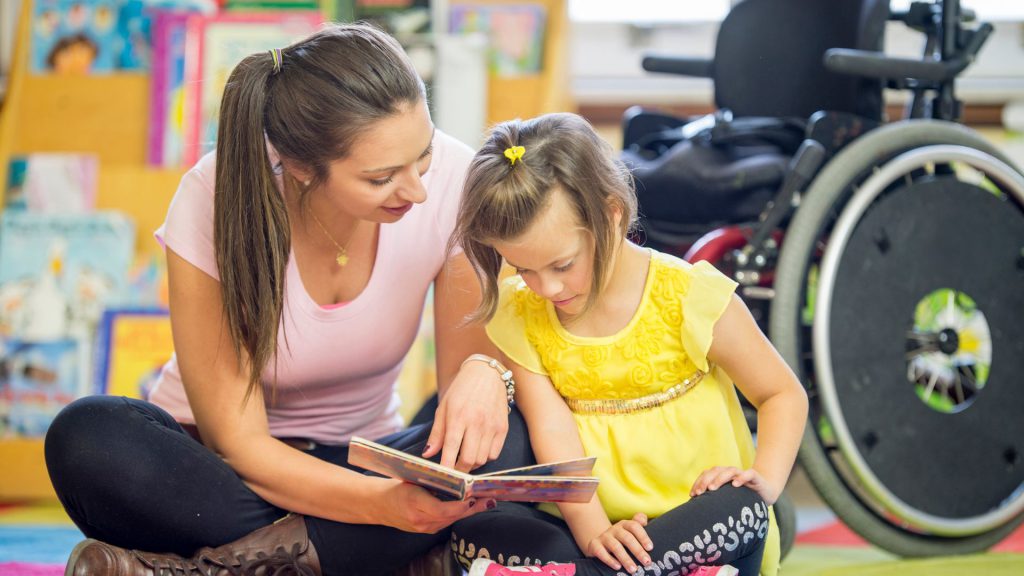
Closing the Gap in Childhood Disability Support
Families raising young children often tell me they feel like they’re piecing together support from systems that were never designed with them in mind. Mainstream childcare is rarely an option and self-funded specialist at home care causes significant financial strain.
This is why initiatives like RippleAbility are so important. Rather than trying to fit families into existing frameworks, RippleAbility has been developed to meet families where they are, catering for their unique situations. This vital respite program is made possible through the generous support of Carers WA and Carer Gateway, with expert care delivered in partnership with Hannah’s House and early childhood expertise from Goodstart.
With specialist staff and environments built for children with complex needs, it aims to provide not just care for children but breathing space for parents and siblings too.
What makes this approach powerful is that it intentionally reframes respite, not as a luxury but as a lifeline. It’s a small but significant step toward the kind of systemic support that should be available to all families in this situation.
Looking Ahead
RippleAbility is currently in its pilot phase, but it offers a glimpse into what the future of disability care in Australia could look like: family-centred, flexible, and focused on long-term wellbeing. If we can demonstrate what clinical evidence and lived experience already tell us – that consistent, specialised respite dramatically improves family wellbeing, then we can start to shift the national conversation from short-term fixes to long-term solutions
The objective is that programs like this won’t remain isolated but instead become the foundation for a broader system of support available to all families raising children with profound disability. Because no parent should be left parenting on empty, and no child should miss out on the care, opportunities and experiences they deserve.
 Michelle Olaithe is a Clinical Director and Program Project Lead at RippleAbility. She is also a Clinical Director at HealthBright. Michelle absolutely loves what she does whether that be helping people as a clinical psychologist, adding to the research field in her role as Honorary Research Fellow, or working with her team to bring quality psychology, psychiatry, and primary physician care to people across Australia.
Michelle Olaithe is a Clinical Director and Program Project Lead at RippleAbility. She is also a Clinical Director at HealthBright. Michelle absolutely loves what she does whether that be helping people as a clinical psychologist, adding to the research field in her role as Honorary Research Fellow, or working with her team to bring quality psychology, psychiatry, and primary physician care to people across Australia.
Citations:
- Children and young people with disability, 2022
- Grattan Institute Report No. 2020-11, August 2020
- National Disability Insurance Scheme. (2021b). Pricing Arrangements
- https://doi.org/10.1016/j.dhjo.2023.101506
- Mapping Project Support for Siblings of Children and Adults with Disability











